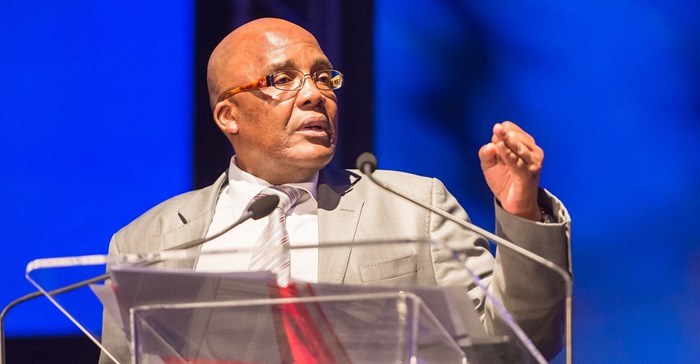Many people currently criticising the NHI are the same ones wholeheartedly supporting the student campaign without recognising the link between the two. Education ministries provide bursaries for the poor who cannot afford the fees to further their studies, but the healthcare system only helps the rich.

Healthcare and education
“If there is to be equity, specifically free education for the poor at tertiary level, there must be free medical assistance for the poor as well. Medical aids are nothing more than pre-payments for future medical demands, because nothing in life is free – someone always has to pay for it,” said health minister, Dr Aaron Motsoaledi at the opening of the National Pharmacy Conference.
While the world economic systems are divided into communism or socialism and capitalism, education and healthcare are the two indisputable issues where the state has to provide the resources.
An article published in the British medical journal The Lancet indicated the world was on the brink of the third medical transition, essentially change that affects populations rather than individuals. The first had been the 18th century introduction of clean water and sanitation; the second the 20th century widespread vaccination policies and now the shift focusing on universal healthcare financing that would ensure every citizen has access to equitable healthcare based on their health requirement and not their socio-economic status.
While South Africa called the policy NHI, universal health coverage was an issue incorporated in the United Nations (UN) Sustainable Development Goals. Motsoaledi said the myths purported about the NHI ignored it was a system that pools capital to allow every citizen access to good quality healthcare – a concept medical aids already employ.
“South Africa does not have a debate about the quality of healthcare, since the reality is the depth of the pocket determines the level of care. We need to serve citizens in line with international conventions,” he said.
Globally, issues like Brexit and the US presidential race have highlighted the extent to which the world’s poor are “demanding their time under the sun and the rich are resisting the change”.
Motsoaledi said the NHI was not calling for private healthcare to be closed down to introduce a “poor public healthcare system that is corrupt, inefficient and unable to deliver”, but South Africa must recognise the current private healthcare system was expensive in global terms.
Currently, while 16% of the population belong to medical aid schemes, Motsoaledi said a Competition Commission enquiry into the private healthcare system had identified only 10% of citizens can afford to use it.
Last year was the first time the World Economic Forum (WEF) in Davos invited health ministers to the annual discussions, recognising the link between economic growth and health.
“We now know you cannot have sound economic growth without a good healthcare system. That means you cannot end poverty, unemployment and inequality with poor healthcare systems – and the recent Ebola scare demonstrated how if one country has poor healthcare, the whole world can be affected and die,” he said.
An investment of R17bn over the next three years is on the cards to upgrade the country’s public clinics to “workable” levels in line with a broader preparation for introducing the National Health Insurance (NHI) system, said Motsoaledi.
He added the government has invested R4,5bn on developing a health information system that ensures patient records are universally accessible. Essentially changing clinics or hospitals does not require reconfiguring the patient’s medical records.
While the system was not yet functional, he said the state has been working with the Council for Scientific and Industrial Research (CSIR) for the past five years and was confident of an outcome in the near future.